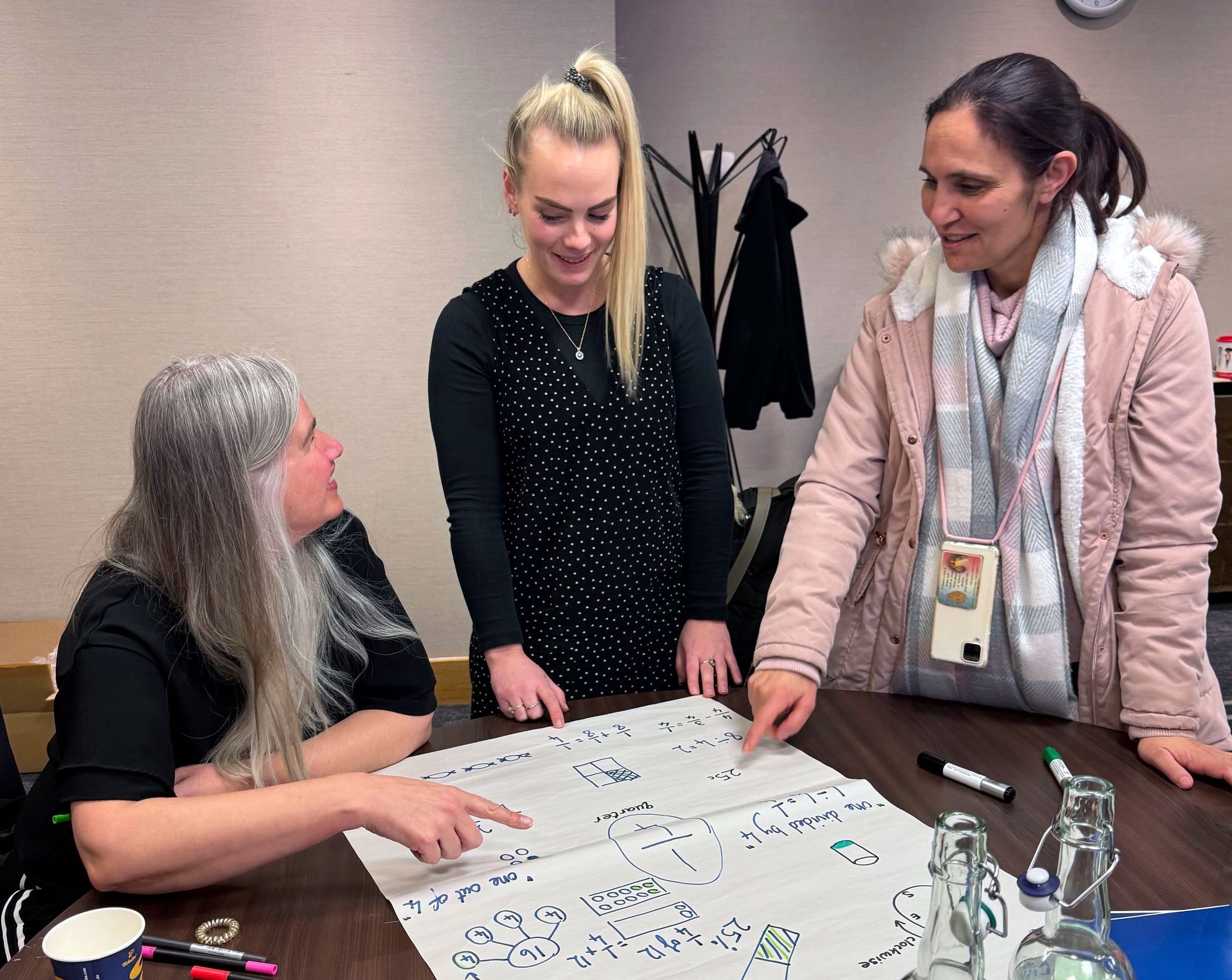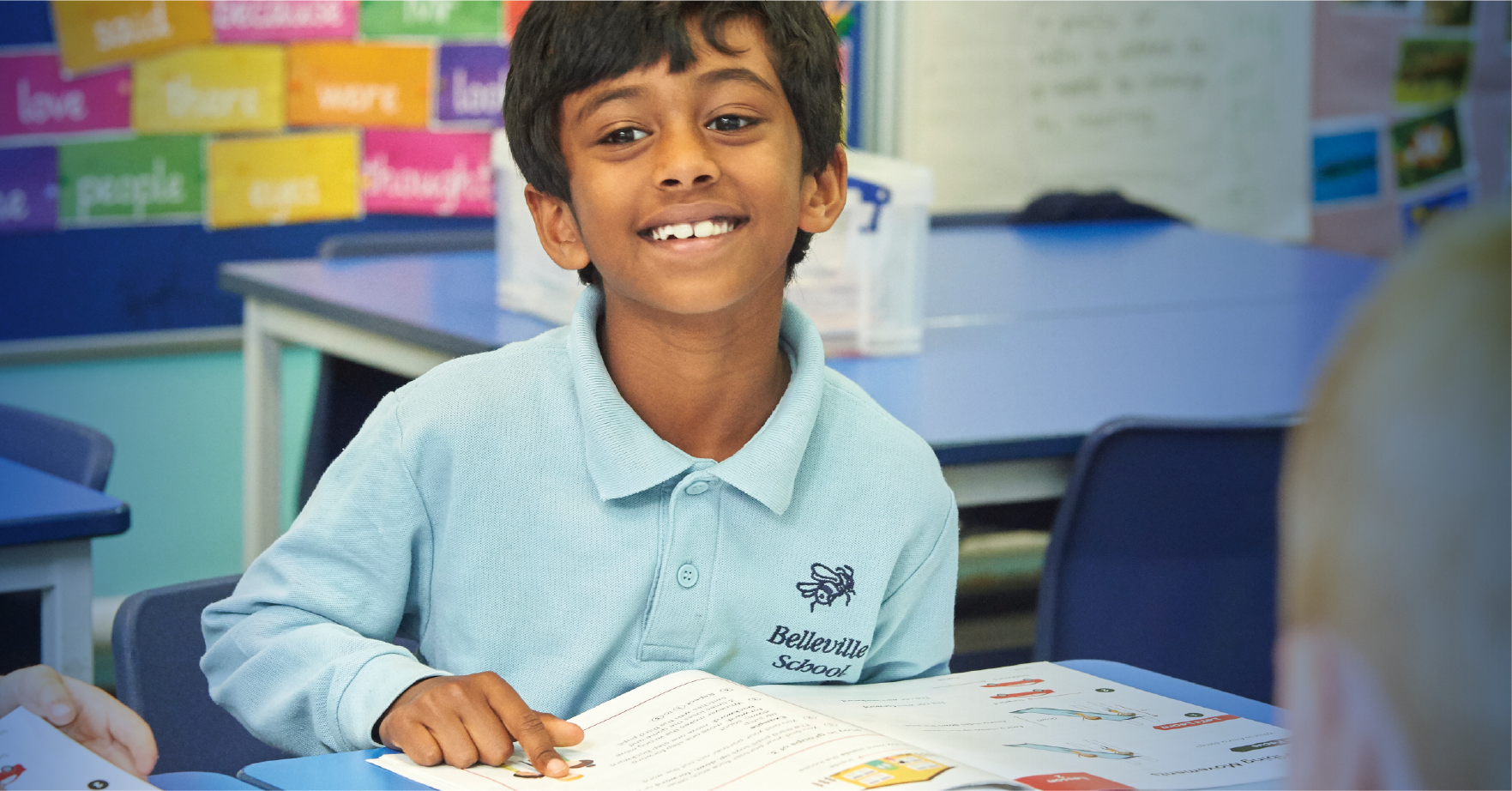Suzi Telford on oracy and the links between maths and mental health
Encouraging a growth mindset, fostering collaboration and ensuring that all children feel successful in maths can have a profound impact on their self-esteem and overall attitude towards learning.
Suzi Telford, Year 6 Teacher and KS2 Maths Lead at Quality First Education Trust in London, recently attended our three-day Essentials of Teaching Maths Mastery training. She posted on LinkedIn about her experience, and when we asked her if she would answer some follow-up questions, she graciously agreed. The following is our written exchange.
1. How long have you been with Quality First Education Trust and how long have you been using the Maths — No Problem! Programme?
I’ve been with the Quality First Education Trust for four years and have been using the Maths — No Problem! Programme since I started at Belleville Primary School. We have been an accredited Maths — No Problem! school for nearly a decade, having first adopted the programme in 2015 and Maths — No Problem! has remained central to our maths teaching ever since. Over the years I’ve seen first-hand how the programme deepens pupils’ mathematical understanding and benefits learners of all abilities.
2. How does the Maths — No Problem! Programme help children explore problems deeply?
Through my research at the University of Oxford, I’ve been investigating the role of oracy in mathematical problem-solving. My findings so far highlight the importance of giving children structured opportunities to articulate their thinking, challenge ideas and build mathematical reasoning collaboratively. Maths — No Problem! aligns well with this approach by embedding discussion and reasoning throughout its lessons.
Another crucial aspect of deep mathematical understanding is ensuring that maths is meaningful and connected to the real world. Maths — No Problem! lessons provide rich contexts that allow children to see the relevance of maths in everyday life. Additionally the structured use of concrete manipulatives supports conceptual understanding, enabling children to visualise abstract ideas and develop a more intuitive grasp of mathematical relationships at a deeper level.

3. Why do you think the ‘typical’ way of teaching maths frowned upon the collaborative approach favoured by the maths mastery method?
Traditional approaches to maths teaching often placed a strong emphasis on speed, rote learning and individual performance, with success often measured by how quickly a pupil could recall facts or apply procedures. Collaboration wasn’t always seen as necessary — maths was often viewed as a subject where independent work and correct answers mattered more than the process of getting there. In many cases classroom culture and assessment methods reinforced the idea that struggling with a problem out loud or exploring multiple approaches was a sign of weakness rather than a natural part of learning.
Through my work with the South West London Maths Hub, I’ve engaged deeply with the principles of maths mastery which challenge this mindset. While fluency is an important component of maths, it is not the whole picture. True mastery also requires problem-solving, reasoning and conceptual understanding, none of which develop in isolation. The Maths Hub’s work emphasises small-step progression, variation theory and rich mathematical talk to deepen understanding. By prioritising discussion and collaboration we allow children to refine their thinking, learn from each other and build a more connected understanding of mathematics rather than simply focusing on quick recall of procedures.
4. What was it that you found beneficial in the training you did with Louise Hoskyns-Staples?
It was incredibly valuable to meet with other Maths — No Problem! schools across England and Europe. As classroom practitioners we rarely have time, let alone three full days, to focus purely on maths so this was a real privilege. The emphasis on lesson design and questioning particularly resonated with me as these I feel are crucial for ensuring all pupils develop a secure and connected understanding of maths.
The training reignited my enthusiasm and got me thinking critically about our own maths provision. What stood out was how tailor-made the course was. Louise quickly recognised that our group had been using Maths — No Problem! for several years and was able to pitch the three days at exactly the right level, addressing our specific needs and interests. Her vast experience in assessment particularly was clear to us all.
Transform Your Maths Assessment
Insights — our online assessment tool — gives you instant, powerful data to identify gaps and improve results.

5. What were some of the practical strategies covered in the training that you found most useful?
One of the most useful strategies we explored was using journaling as a tool for reflection, an aspect of Maths — No Problem! that we haven’t yet adopted at our school. This gave me a lot to think about in terms of how it could support pupils’ reasoning and metacognition.
We also had the opportunity to try out the new Pomegranate app which is partnered with the Maths — No Problem! programme, which was great for seeing how technology can enhance learning. As in our own maths lessons the training was very hands-on, allowing us to work with manipulatives and create resources to deepen understanding.
We also touched on bar modelling and approaches to solving word problems. What really stood out to me was the incredible level of detail in the Maths — No Problem! lesson design. Every step, illustration, character and word choice has been carefully considered. Seeing this level of thought and precision gave me even greater confidence in the Maths — No Problem! textbook and its effectiveness in supporting pupils’ learning.
6. What will the next steps be on your CPD path?
I’m always looking to refine my practice and deepen my knowledge of maths education. I’m currently considering a Expert-level Master Teacher course with Maths — No Problem! as well as the NPQLPM: National Professional Qualification for Leading Primary Mathematics.
7. For teachers who are looking to learn more about maths mastery, what would you recommend?
Start by immersing yourself in high-quality CPD. Attending training sessions with experts like Louise Hoskyns-Staples, engaging with the Maths — No Problem! resources and joining Maths Hub communities can be invaluable. I’d also recommend reading books like Thinking Mathematically by John Mason and Mathematical Mindsets by Jo Boaler (NB. While inspiring, some of the suggested strategies may require significant shifts in teaching practice, which could be challenging in curriculum-driven environments!) to gain a broader perspective on mastery and mathematical thinking.

8. Have you noticed any differences in your pupils since they began using the Maths — No Problem! Programme?
Absolutely. Pupils are confident in approaching unfamiliar problems and their ability to articulate their thinking improves weekly. I’ve noticed that children are willing to persevere, use multiple strategies and justify their answers rather than simply seeking the ‘right’ answer. The structured nature of the programme ensures that all children, including those who might have struggled with maths previously, develop a deep and secure understanding.
9. How are mental health and maths related?
There’s a strong link between the two. Many children (and adults) experience maths anxiety, which can impact their confidence and overall wellbeing. A well-structured, supportive maths curriculum like Maths — No Problem! helps to build resilience by giving children the tools to approach challenges methodically rather than fear failure. Encouraging a growth mindset, fostering collaboration and ensuring that all children feel successful in maths can have a profound impact on their self-esteem and overall attitude towards learning.
Learn more:
5 types of maths journals and how to use them
Choose your words and your manipulatives carefully — two keys for maths success
